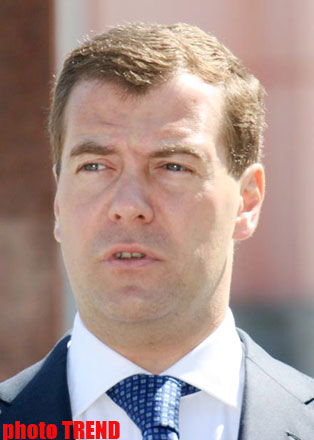\Russia, Moscow, Dec.9 / Trend I.Bragina /
Russia will switch to digital broadcasting by 2015 and the process should be synchronized with all CIS states, Russian President Dmitry Medvedev said at the European and Asian Media Forum today.
"Several digital areas and areas of digital broadcasting operate in Moscow and St. Petersburg," he said, expressing hope that the country can already start full-scale operation in digital television in 2015.
According to the president, the country plans to allocate significant federal funds for such activities. The same processes will take place in the CIS, he added
"I think it would be helpful for all of us if they were in sync," the president said.
Medvedev also considers e-dairy a form of good communication between representatives of power with the people "through which you can get objective information about the life of the country," he said.
"I think that e-dairy is a good form of communication, direct communication, getting the most varied, and most importantly, timely information about what is happening in the world and country. On the other hand it is a good opportunity to feel like a journalist when you prepare responses to certain questions or simply write," he said.
Today Moscow hosts the fourth European and Asian Media Forum bringing together over 150 of the world's top media managers. This year's forum was organized by the state-run Russian news agency RIA Novosti.
Trend General Director Ilgar Huseynov is representing the agency in the forum.
Journalists from the CIS and Baltic states will meet their Russian colleagues, representatives of government institutions, well-known politicians and public figures during plenary sessions, panel discussions, and round-tables.






